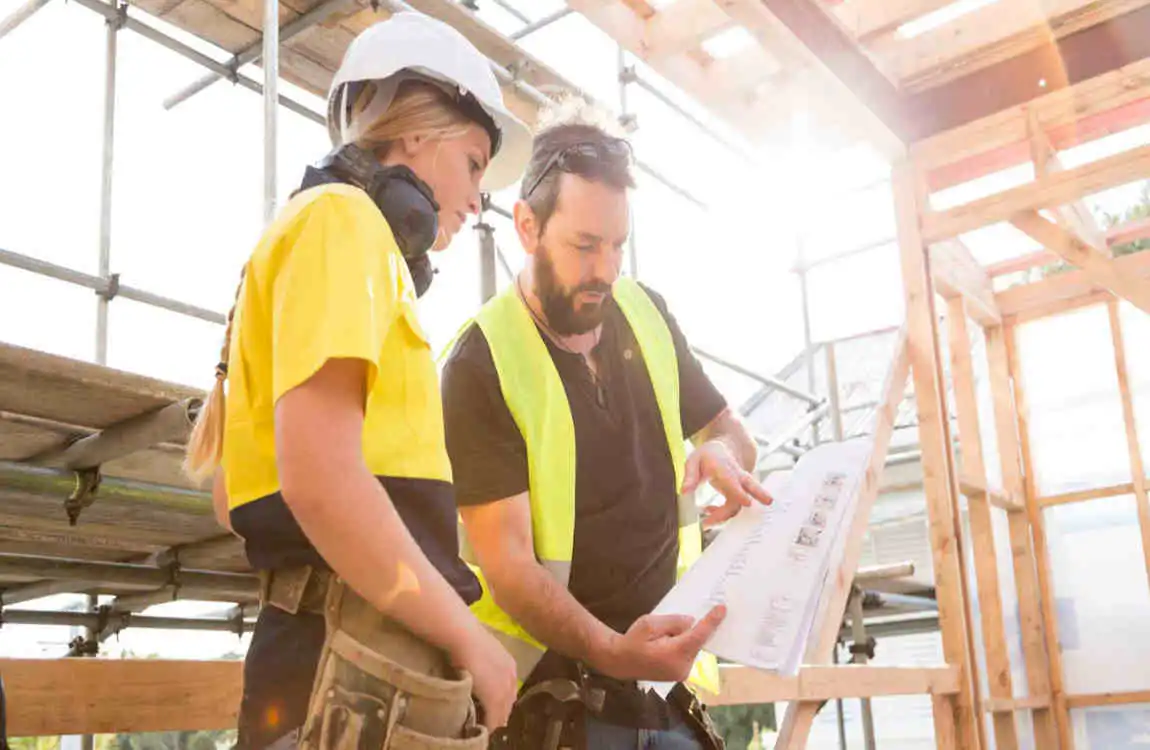Framing an interior bedroom wall is more than just a construction task; it’s a vital component of modern home building. A carpenter is framing an interior bedroom wall with precision, ensuring that the structure not only stands the test of time but also meets aesthetic standards.
Understanding Interior Bedroom Wall Framing

Definition and Purpose
Interior bedroom wall framing serves as the backbone of any room, supporting not only the walls themselves but also the overall architectural integrity of the home. It establishes the layout of the space, influences sound insulation, and aids in the overall energy efficiency of the house.
Key Differences Between Framing Exterior vs. Interior Walls
When it comes to framing, interior walls differ significantly from exterior walls. Here are a few key distinctions:
- Load-Bearing vs. Non-Load-Bearing: Exterior walls often bear the weight of the roof and upper floors, while interior walls may not.
- Materials Used: Exterior walls require weather-resistant materials, whereas interior walls can use lighter materials.
- Insulation: Interior walls may focus more on soundproofing rather than thermal insulation.
Common Materials Used in 2025 for Framing
As we progress in 2025, carpenters are utilizing a mix of traditional and innovative materials for framing:
Material Type Description
Lumber Types: Standard wood like pine, fir, and engineered lumber.
Metal Studs are increasingly popular for their durability and fire resistance.
Sustainable Alternatives: Bamboo and recycled materials for eco-friendly options.
Pre-Framing Preparation: Planning and Design
Consult the Architectural Plans and Building Codes
Before any hammer hits the nail, it’s crucial to examine the architectural plans and adhere to building codes that are relevant in 2025. This ensures that your project is safe and compliant with local regulations.
Importance of Accurate Measurements and Layout Marking
Measurement is the backbone of successful framing. Accurate measurements prevent costly mistakes and ensure that everything fits together as intended. Marking out your layout on the floor helps visualize the space before the actual framing begins.
Tools a Carpenter Uses When Framing an Interior Bedroom Wall
A proficient carpenter relies on a variety of tools, including:
- Tape Measure: For precise measurements.
- Chalk Line: To mark straight lines on surfaces.
- Framing Square: To ensure corners are square.
- Level: To check vertical and horizontal alignment.
Safety Considerations for Carpenters During Framing
Safety should never be compromised. Carpenters must wear appropriate gear, including safety glasses, gloves, and hard hats. Additionally, ensuring a clean workspace can significantly reduce the risk of accidents.
Step-by-Step Process: How a Carpenter Is Framing an Interior Bedroom Wall
Clearing and Prepping the Workspace
Begin by clearing the area where the wall will be framed. Remove any obstructions and ensure that the floor is clean and level. This sets the stage for a smooth framing process.
Laying Out the Wall Dimensions on the Floor with Chalk Lines
Using a chalk line, lay out the dimensions of the wall on the floor. This visual guide helps in aligning the framing materials accurately.
Cutting and Assembling the Bottom and Top Plates
Next, cut the bottom and top plates to the appropriate lengths. These plates will serve as the foundation for your vertical studs. Assemble them by laying them on the floor according to your layout.
Installing Vertical Studs: Spacing, Alignment, and Securing Techniques
Position the vertical studs between the top and bottom plates. Typically, studs are spaced 16 inches apart, but this may vary based on design requirements. Use nails or screws to secure them firmly.
Adding Door and Window Framing Elements (if applicable)
If your design includes doors or windows, you need to frame these openings. This involves cutting out header pieces and ensuring proper support around the openings.
Integrating Insulation and Soundproofing Considerations into Framing
Adding insulation between the studs can significantly improve thermal efficiency and soundproofing. Consider using materials like fiberglass batts or foam board for adequate insulation.
Final Framing Inspection for Checklist Compliance
Once the framing is complete, conduct a thorough inspection to ensure everything meets local building codes. Check for alignment, stability, and that all necessary components are in place.
Essential Carpentry Tips for Flawless Interior Bedroom Walls

Choosing the Right Lumber for Stability and Moisture Resistance
Selecting the correct type of lumber is essential. Look for moisture-resistant options, especially in areas susceptible to humidity. This will help prevent warping and other structural issues.
Nailing vs. Screwing: Best Practices for Secure Framing
While both methods can be effective, using screws often provides a more secure hold compared to nails. However, nails are quicker for assembly. Consider your project’s needs when choosing between the two.
Dealing with Uneven Floors or Ceilings When Framing Walls
If you encounter uneven floors or ceilings, use shims to level the bottom plate. This ensures that your wall remains straight and true, avoiding future complications.
Common Framing Mistakes and How to Avoid Them
Framing can be tricky. Here are some common mistakes to watch for:
- Incorrect Measurements: Always double-check your measurements.
- Inadequate Support: Ensure door and window frames are adequately supported to prevent sagging.
Tips on Achieving Perfect Wall Alignment and Square Corners
Use a framing square to ensure your corners are square. This will help achieve perfect wall alignment, which is crucial for a professional finish.
Time-Saving Hacks Without Sacrificing Quality
Consider using a power nailer for faster assembly. It saves time without compromising the strength of your framing.
Incorporating Modern Construction Trends in 2025
Use of Advanced Framing Techniques to Reduce Material Waste
Carpenters are increasingly adopting advanced house framing techniques that optimize material usage. This not only reduces waste but also enhances energy efficiency.
Eco-Friendly and Sustainable Framing Materials Gaining Popularity
The demand for sustainable building materials is on the rise. Options like bamboo and recycled lumber are becoming more commonplace, appealing to environmentally conscious homeowners.
Integration of Electrical and Smart Home Wiring During Framing Phase
As technology advances, integrating smart home wiring during the framing phase is becoming standard practice. This allows for seamless installation of modern conveniences.
Prefabricated Wall Panels as an Alternative and Their Pros and Cons
Prefabricated wall panels offer a quick and efficient alternative to traditional framing. However, they may come with limitations in customization. Weighing the pros and cons is essential before deciding on this method.
Post-Framing Steps: Preparing for Drywall and Finishing
Checking Structural Integrity After Framing
After the framing process, it’s crucial to check the structural integrity. Ensure that everything is secure and meets the necessary standards.
Installing Vapor Barriers and Moisture Control Systems
Installing vapor barriers can help control moisture levels, preventing issues such as mold or mildew in the future.
Prepping Walls for Drywall Installation, Insulation, and Finishing Touches
With the framing complete, it’s time to prepare for drywall installation. Ensure that insulation is placed correctly, and the walls are clean and ready for finishing touches.
Tools and Technology Helping Carpenters in 2025
Laser Levels, Digital Measuring Devices, and Framing Calculators
Advancements in technology have provided carpenters with tools like laser levels and digital measuring devices that enhance accuracy and efficiency during the framing process.
Software for Framing Design and Model Simulation
Modern carpenters can utilize software for framing bedroom design and model simulation, allowing for better planning and visualization before construction begins.
Power Tools Advancements Improving Precision and Speed
The latest power tools are designed for speed and precision, making the framing process smoother and more efficient. Investing in quality tools can significantly impact the final outcome.
